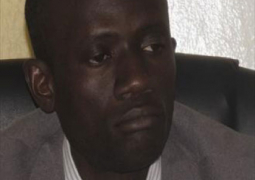Climate Change, in the past decade, has been called everything from the "greatest hoax ever perpetrated on mankind" to the "greatest challenge to face man."
There have been conventions, coalitions, and conferences held in its name.
Hundreds of politicians have discussed, debated and even come, to agree on possible solutions armed with which we might stand and face its impending challenges.
Thousands of scientists have released studies, statements, and reports, documenting its harmful and possibly even apocalyptic consequences for all of the world's inhabitants, including its impact on bio-diversity.
Experts said that
"Small rises in temperature and reductions in rainfall could 'tip the balance', and lead to severe water shortages and reductions in crop yields. "It is said that these could fall by as much as 30 per cent by the 2050s."
Historical evidence shows that both natural and managed ecosystems in
The negative effects of climate change on crop production are especially pronounced in the sub-Saharan
Climate change could undo even the little progress most African countries have achieved so far in terms of development.
Often African governments have placed climate change at the bottom of their national priorities. This has to change if they are to make any progress in dealing with the alarming trends.
More importantly, climate change adaptation strategies have to be strengthened.
Herein lies the necessity for African governments to put pressure on the developed countries to support them in their fight against climate change.
"We should be treating, I think, the whole issue of climate change and global warming with a far greater degree of priority than I think is happening now."
Prince Charles
Read Other Articles In Article (Archive)
How to Conduct an Interview
Jul 30, 2009, 7:52 AM
Gambia Cashew and Sesame Sector Development Strategy launched
Jun 24, 2014, 11:14 AM



